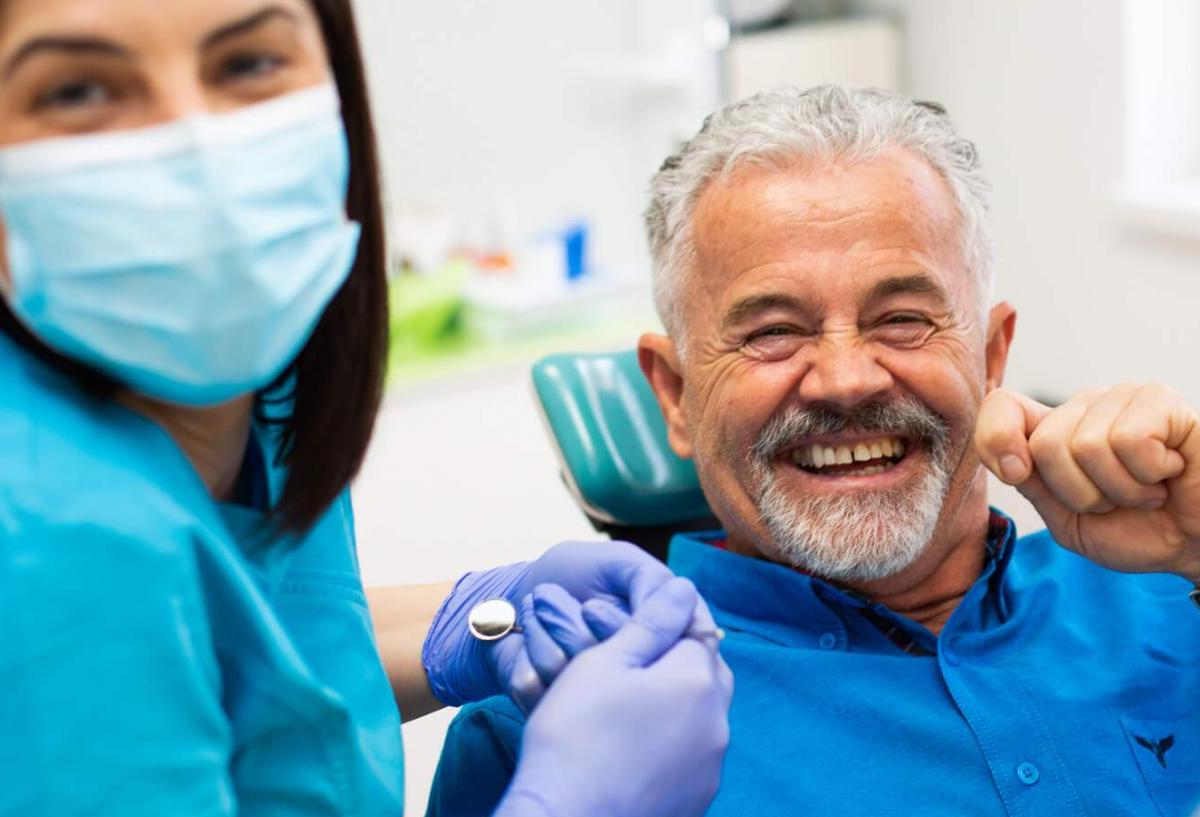
Grassroots care where it’s needed
Many of Manitoba’s health care providers graduate from UM every year, but did you know we also provide care in the community?
When considering the University of Manitoba’s impact on our province it can be hard to know where to start. There are so many stories and examples of how UM has improved and continues to improve the lives of Manitobans.
One area of impact that is often overlooked is the health care UM provides to the community. Yes, a large number of the province’s health care providers graduate from UM, but the university can also be found at the grassroots level providing care to communities who need it.
The Dr. Gerald Niznick College of Dentistry’s general clinic has been delivering outstanding dental care to members of the community for decades, just ask Catherine Hyska, a patient since 1966 – a time when fillings were 25 cents, and crowns cost between $5 and $10.
Hyska said she has consistently returned to the clinic over the years because “I knew I was looked after, I got good care and everybody is so friendly.”
Dr. Anastasia Kelekis-Cholakis, dean of the college, met Hyska on the 93-year-old’s most recent visit to the dental school.
“I think it’s amazing that Catherine has been a patient for 57 years,” Kelekis-Cholakis said. “We are so lucky to have patients that see value in the care that we offer here – but beyond the care, they are loyal to the educational opportunities they offer the students in our facility. It’s truly wonderful.”
Ongomiizwin and the COVID-19 vaccine rollout
Ongomiizwin, the Indigenous Institute of Health and Healing – which provides health care to the community in many clinical areas through its Health Services branch – was instrumental in leading the COVID-19 vaccination project in all 63 Manitoba First Nations at the height of the pandemic in 2021.
“We were asked to lead the vaccine rollout because of our strong collaborative relationships with First Nations and our expertise at delivering trusted, culturally safe care in our communities,” said Melanie MacKinnon, a Cree nurse who leads Ongomiizwin and is executive director of the Health Services branch.
The massive rollout required Ongomiizwin putting out a call to recruit 350 health care providers, including UM faculty and students in the health sciences. They met their target in less than a week.
At the time, UM was the only university in Canada to be recognized as having the Indigenous-led clinical operations and public health expertise to direct a project of that scale.
Rehabilitation Sciences partnerships
A First Nations partnership at the College of Rehabilitation Sciences has doubled its community reach and impact in the last six years.
The partnership, named Kiga mamo anokimin onji minoayawin / Ka mamawi atoskatenow minoyin, which translated from Ojibway and Cree means, “We will work together for health and wellness” has a goal to bring the college’s services to the communities, based on their self-identified needs and priorities. It has included projects to help young adults who have aged out of children’s services, people who are frail, and those with dementia and their loved ones.
One of the priorities being furthered by the initiative is to build a team of college and community representatives to consider a strategy for each community and an overall strategy for all communities.
“By working together, we are meeting community needs, and the communities are teaching our faculty, staff and students in a spirit of collaboration and sharing,” said Dr. Reg Urbanowski, dean of the College of Rehabilitation Sciences.
The College of Rehabilitation Sciences has also moved its Physical Therapy Neuro Rehab Clinic from UM’s Bannatyne Campus to Riverview Health Centre in April 2022.
As part of a collaboration, called Rural Rehabilitation Outreach, the student-led clinic will see patients both in-person and virtually, using tele-rehabilitation. This is a model that has patients receiving treatments from providers from anywhere in Manitoba.
“The exciting thing about this hybrid model is that about 40 per cent of the patients our students are seeing are through tele-rehab,” said Kathleen Klaasen, chief executive officer at Riverview Health Centre. “I think that speaks to the demand for this service and for physiotherapy in general.”
Positivity and wellness for kids in the community
UM also has many community programs that build positivity and good health.
The Summer Weekend Inner-city Supervised Hoops (SWISH) program, for example, gives inner-city kids a place to play basketball in a supervised setting every weekend throughout the summer.
The outdoor drop-in basketball program – supervised by paid staff and volunteers, including adult basketball players, coaches, and community members – takes place at the University of Manitoba Bannatyne campus.
The popular Biomedical Youth Program (BYP) summer camp, allows youth from the inner city, northern communities, and across Manitoba to conduct fun research and health-related procedures. The summer program, launched in 2006 with only 15 participants, now hosts 150 students each year.
CanU introduces Winnipeg youth to the idea of a university education through programming on campus. Student mentors lead activities that include physical education, nutrition and literacy.
Please read more stories about how UM is partnering with and impacting the lives of Manitobans.






